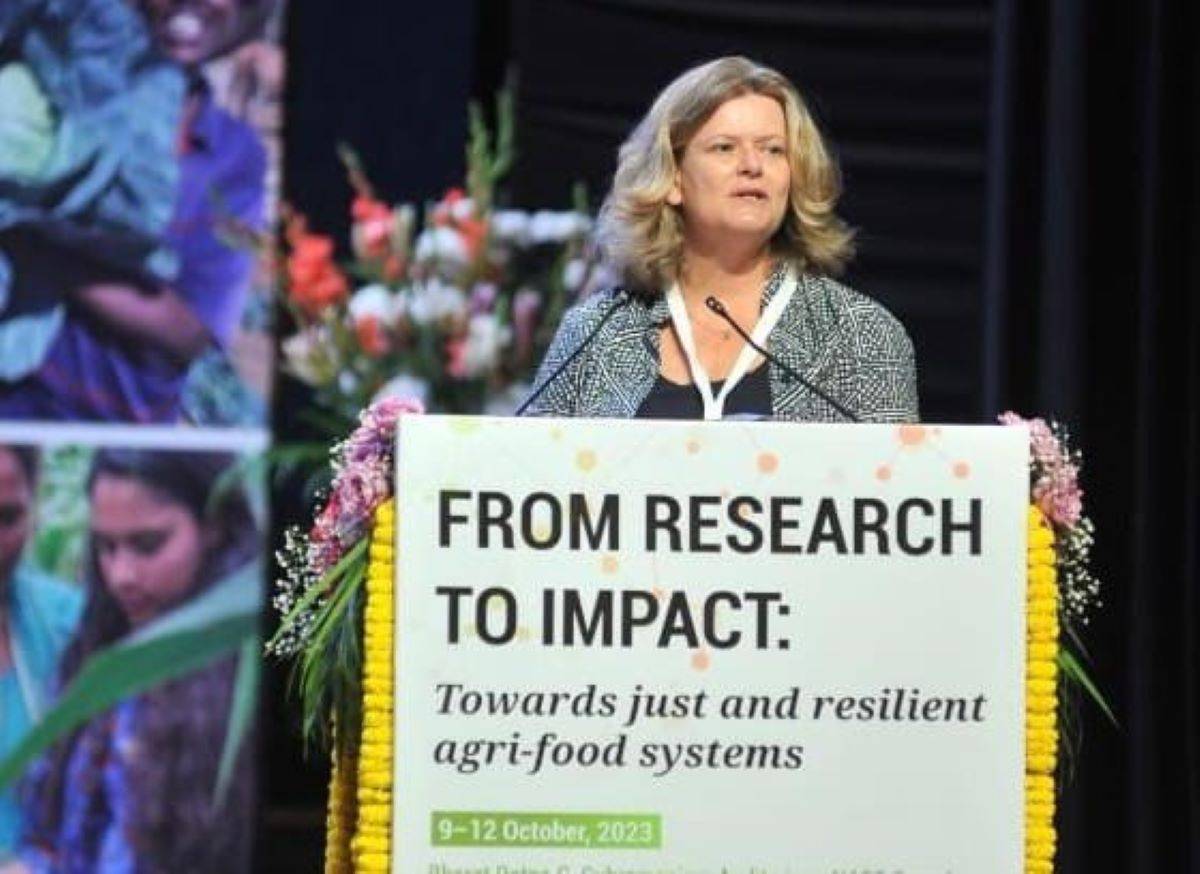
Women and youth agri-preneurs continue to encounter substantial challenges that hinder their pivotal role in fostering equitable and resilient agri-food systems. These hurdles encompass issues such as limited access to financial resources, restricted land ownership, engagement in informal and unpaid labor, and limited opportunities to advocate for their needs.
These concerns were brought to the forefront during a panel discussion comprising business leaders, model farmers, and scientists at the ongoing international gender conference held at ICAR-NASC Pusa from October 9 to 12, 2023. The conference, titled ‘From research to impact: Towards just and resilient agri-food systems,’ is co-hosted by the CGIAR GENDER Impact Platform and the Indian Council of Agricultural Research (ICAR) and was inaugurated by the President of India, Droupadi Murmu, on the opening day.
The second day of this four-day conference witnessed a diverse array of 18 parallel sessions, featuring more than 80 scientific posters. These sessions covered a wide spectrum of topics, including solutions to alleviate the burdens faced by women farmers in the post-harvest processing of millets, evaluations of gender disparities among women street vendors and hawkers, and the gender-specific factors influencing seed selection among farmers in Andhra Pradesh and Telangana.
Dr. Nicoline de Haan, Director of the CGIAR GENDER Impact Platform, emphasized the global significance of addressing gender inequality within agri-food systems. She highlighted that women often experience greater food insecurity than men and are more profoundly affected by external shocks, such as floods and droughts. Dr. de Haan underlined the importance of amalgamating research, empirical evidence, and practical insights to guide policymakers and investors toward optimal solutions, aligning with global goals related to gender equality and women's empowerment.
During a panel discussion held on the second day of the conference, key figures in the agricultural sector shared their experiences and insights. The session, titled 'Grounding the research: Experiences from the field,' was presided over by Dr. V. Geethalaxmi, Vice Chancellor of Tamil Nadu Agricultural University. Jyotsna Kaur Habibullah emphasized the prevalent gender disparities in agriculture, where women often perform the labor-intensive work in the fields without reaping the benefits of land ownership or fair compensation.
Their contributions frequently go unnoticed and unpaid. Anusha Jookuri, who successfully expanded her business from five to 1,500 beehives within four years, lamented the initial difficulty of obtaining financing. She revealed that banks were hesitant to extend loans when she first started, only showing interest after she had already achieved business success. Dhruv Tomar stressed the importance of persistence and patience in entrepreneurial endeavors, while Akriti Sharma added that capacity-building and technological support can empower farmers to transform their mindset and embark on entrepreneurial paths.
The panelists' experiences were complemented by a keynote presentation from Dr. Soma K Parthasarathy, a policy analyst at MAKAAM (Mahila Kisan Adhikari Manch). Dr. Parthasarathy highlighted how women and landless tenant farmers could drive resilience in agri-food systems through a combination of activities, including farming, gathering, and environmental care work. She proposed a shift towards circular economies, characterized by solidarity, exchange, and co-ownership, by granting women access to platforms where their voices are heard, ensuring women are counted in data, and promoting seed exchanges. Additionally, she emphasized the need to enhance women's roles and voices in climate discussions and the formulation of policies related to land and forest conservation.
The session was concluded by Eleanor Dean, General Manager of Outreach & Capacity Building at the Australian Centre for International Agricultural Research (ACIAR). Dean stressed that poverty and inequality are rooted in unequal power dynamics that extend beyond gender. This perspective led ACIAR to expand its efforts beyond gender equality to encompass social inclusion, as detailed in its recently published Gender Equity and Social Inclusion (GESI) Strategy and Action Plan.











